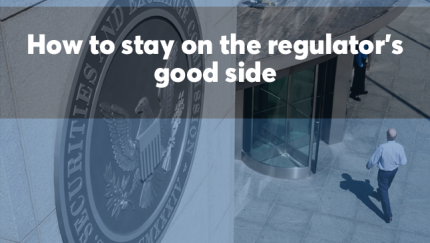The fiduciary rule could die one of two deaths, putting the industry back to square one after years of back-and-forth struggles between opponents and supporters of the regulation, experts say.
In the first of two scenarios, Republican members of Congress who control both the Senate and the House can attempt to kill the rule by passing a bill. Earlier attempts to do just that floundered and faced almost certain veto from President Obama.
A spokeswoman for Rep. Jeb Hensarling (R-Texas), who is chairman of the House Financial Services Committee, declined to comment on new initiatives, but pointed to previous statements on wanting to overturn the fiduciary rule.
Privately, insiders are hopeful the regulation will be implemented.

Industry observers say although the veto threat may be removed, the legislative path is the least likely one to be used, as Senate Democrats may filibuster such an effort.
"Now the question is: Can Senate Democrats unite to fend off a legislative attack? We have a lot of strong supporters in the Senate, but they'll be defending a lot of territory," says Barbara Roper, director of investor protection at the Consumer Federation of America.
From recommending wrong share classes to cherry-picking allocations, these are the pitfalls advisers should avoid.
If the Senate passed a bill, many industry insiders anticipate that Trump would sign it.
"To the extent that he is a Republican, one would assume he would sign that bill. So within the first few months the fiduciary rule would be overturned," Bartlett Naylor, financial policy advocate at Public Citizen, says.
-
A federal judge categorically rejects claims by an insurance group that the agency overreached. The ruling "sets the tone" for other suits nationwide, an investor advocate says.
November 5 -
"There are ways to potentially be cute with it. You could potentially cut out retirement business from the back-end bonuses," says an ex-Merrill Lynch executive who works in the independent space. "Cute doesn't usually work when it comes to regulators."
November 2 -
Unlike its rival, Morgan will keep commission-based retirement accounts under the new regulation's best interest contract exemption.
October 26
PRESSURE TO ACT
President-elect Trump has not spoken out on the rule, though some of his advisers have said they intend to roll it back along with a number of other financial regulations. But, as president, Trump has more powers by which to kill the fiduciary rule.
"The easier path, the one I think is more likely, is that the Department of Labor, with new leadership, will simply delay the rule. Agencies delay new rules all the time," says Ron Rhoades, director of the financial planning program at Western Kentucky University.
Rhoades says that the new administration can delay the rule indefinitely, giving them time to craft a new rule which can be something entirely new or simply a reversion back to the previous regulatory framework.
"There's always the potential for a lawsuit to challenge that, but it's unlikely. Judges typically defer to agencies," he says.
Several industry observers, noting Republican interests and Wall Street lobbyists within Trump's transition team, say it's unlikely that the president-elect would decide to keep the rule despite the fact that he ran as an anti-establishment candidate.
"This is an important issue to financial services, probably only second in terms of the Volcker Rule. It has a tremendous effect on their profitability. So they will be pressuring the new administration to delay the rule as much as possible," Rhoades says. "What's the likelihood that he would spend political capital fighting the Republicans on this rule for an issue that maybe he didn't know exists. We can always cross our fingers, but I think it is very, very likely that we will see the DoL fiduciary rule delayed and eventually replaced with a new rule."
Once the Labor Department's rule is dead, that will leave many firms in an awkward position as they have been spending millions of dollars preparing to implement it early next year. Merrill Lynch even advertised its pro-fiduciary position to the general public.
Joel Bruckenstein, president of Technology Tools for Today and a Financial Planning columnist, says firms that have moved to embrace a fiduciary stance may end up benefiting from a less regulated marketplace.
"We don’t know for sure whether the rule will go into effect, but whether it goes into effect or not, its influence will be felt in the industry regardless because some firms have already spent millions and millions of dollars moving to a fiduciary standard. In the absence of a rule, they’ll perceive that as a competitive advantage and use that against those who do not," he says.






